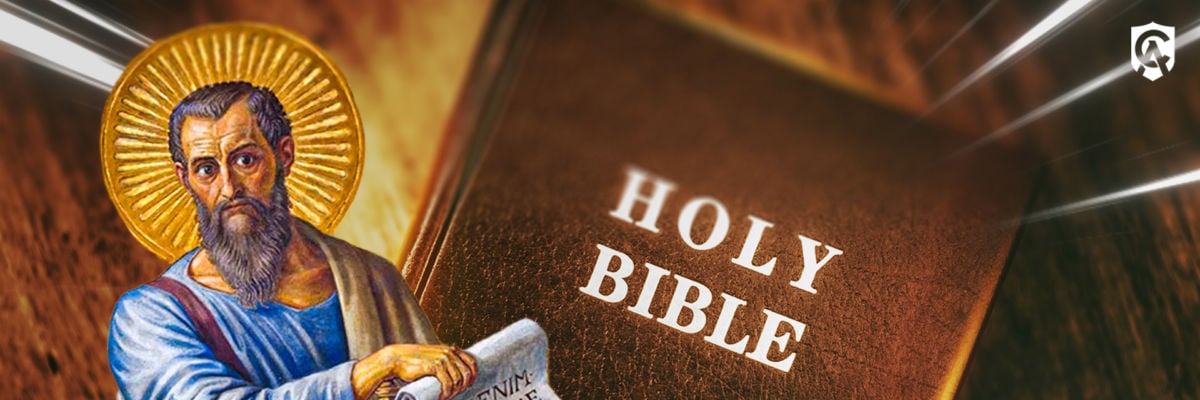
Jimmy Akin answers a caller who asks, “where is purgatory in the Bible?” In this clip, he explains the Catholic belief of purgatory and points to verses from scripture that support our belief.
Transcript:
I have a Protestant friend who says, Well, where in the Bible does it say that there’s such a thing as purgatory?
The idea of purgatory, for historical reasons, is frequently opposed by our Protestant friends, although actually these days there are a number of Protestants who are more open to the idea. And part of what helps people be more open to it is realizing what it actually is. It’s really the final stage of something that our Protestant friends believe in.
They believe that even after we have been forgiven our sins and are in a state of grace or saved, that God continues to work in our lives to make us holy. And that process in Protestant theology is referred to as sanctification. It’s the process by which we grow in God’s grace, and we become more loving and more Christlike.
But they also recognize that it is a process. It’s not something that happens in a single moment. It’s something that occurs over the course of the Christian life. And so there’s then a question, well, are most people perfectly loving? Are most people perfectly Christlike or perfectly holy by the time they die? And for most people, Christian experience indicates they’re not.
They may have grown a lot as Christians over their life, but they’re not perfect at this point. However, they will be perfect in heaven. And that’s something our Protestant friends acknowledge. There’s not going to be sinning in heaven. We’re not going to be imperfect. We’re not going to be suffering from temptations and disordered desires and things like that.
And so what that means is between the point of death where you’re still imperfect and the point where you’re in the full glory of heaven, where you will be perfect, there must be a purification, a final stage of sanctification, accomplished by God’s grace. And we don’t know a whole lot about how that works. It may take time.
It may happen in the twinkling of an eye, but it’s there. And that essentially is what purgatory is. It’s just the final stage of sanctification. And when you explain it in those terms, that makes the concept clear. It becomes a lot more intelligible and a lot more acceptable to folks coming from a Protestant background. Various Protestants, for example, like C.S. Lewis, believed in purgatory, and he wrote about purgatory.
So it’s not something that’s that Protestants can’t accept. It’s just something that’s not typically on their mental maps because they’ve never had it explained in that way in terms of where it is in the Bible. Well, we could deduce it simply from the principles that I laid out, which, you know, all have biblical bases. But there are some passages that do refer to aspects of purgatory.
One of them is not in the Protestant Bible, but it’s in the Old Testament book known as Second Maccabees in Second Maccabees. Judah Maccabee and his associates find the bodies of some soldiers who were fighting for Israel. They were fighting on God’s side, but they were also superstitious. Ali had some amulets on them and they realize that they that these men had sin, which they had apparently not repented of when they died.
And so they arranged to do two things for these men. One of the things that they do is they take up a collection so that they can have as a sacrifice made for them in Jerusalem at the temple. And that’s the Old Testament equivalent of having mass for someone. They also pray for the people who died with this unrepentant said Now they died in God’s grace.
They were fighting for God, but they were still imperfect. And so they pray for them. And that indicates a belief that our prayers can have an effect, a positive effect for people who are in the afterlife, but who need purification from things that they had done. Now, as I said, this book is not in the Protestant Bible, but it is a Jewish book from before the time of Christ.
And that shows that this belief that the prayers of the living can help the dead be purified from sins they committed in life is something that was part of the true religion before the time of Christ. And it continued in not only in Christianity and in Catholicism and in Eastern Orthodoxy. It also continued in Judaism. Modern Jews pray for their departed loved ones, and so it’s something that is broad-based.
It’s part of the Judeo-Christian faith more broadly in the New Testament, which is, of course, in the Protestant Bible, there is the book of First Corinthians, and in First Corinthians three, Saint Paul talks about how all of our works will, when we stand before God will be tested by fire. And He says, If we’ve built badly during life, then our works will be burned up, but we will be saved.
And it will be like escaping through flames, like running out of a burning building. But we’ll still be saved. And so this passage indicates that there can be negative consequences, even for saved people in the afterlife. And so that would indicate that something like purgatory must take place, that what we’ve done is going to be tested and we can suffer a negative consequence, as if we haven’t built well to use Paul’s language in this life, but we’ll still be saved.
And so we’re not talking here about damned people, but genuinely saved people may still have some consequences of what they did in this life that needs to be dealt with. And that’s essentially an aspect of purgatory. Now, I mentioned that I’d recommend some resources. We have a lot of resources on purgatory at Catholic dot com. You can just go to Catholic dot com, put in the word purgatory and a bunch of stuff will come up.
Also, Karlo Broussard has a book with the ultra 1960s title, Purgatory Is For Real. I mean, they just should have a real man. Exactly. They should have added the word man on the end of that. Right. And we also have two answers on purgatory, I believe. And so we have quite a number of resources, many of them online for free, and also some books you can purchase.



